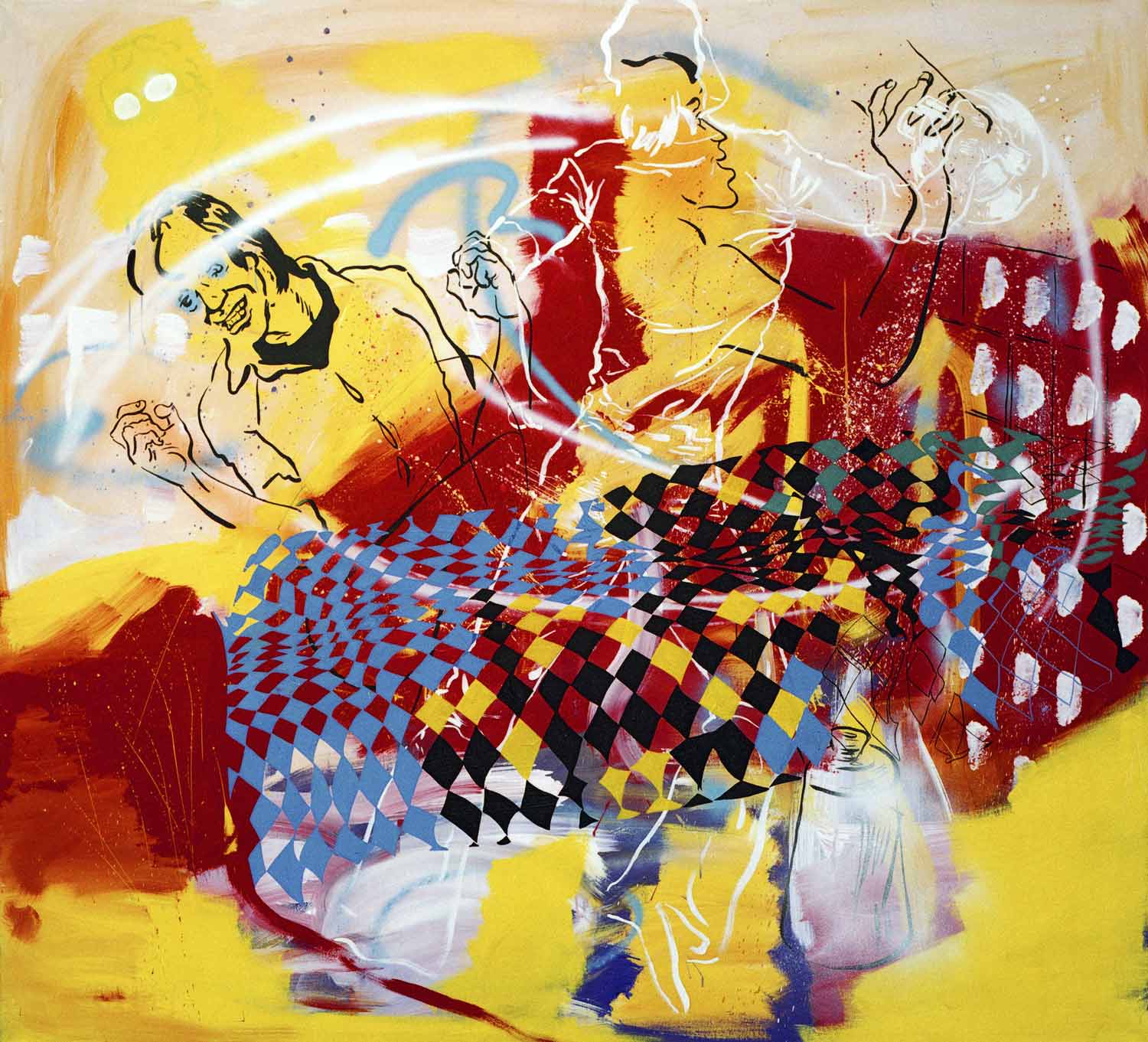
- Diese Veranstaltung hat bereits stattgefunden.
REBEL REVOLUTION
29. April 2021 - 30. April 2021

The Rhineland rebels were the analogic predecessors of the information revolution. Wild, playful artists aiming to make fun of everything. They created artworks with a critical undernote, in which they stated, with their very characteristic creative expressions, their opinion about what was hap- pening in the world. Duchow, Kohlhöfer, Polke and Schulze recorded with acrylic paint, sprays, col- lage and photographs, amongst other, the events that were taking place around them. The focus was set on what the official art history criticism omitted. It was better to take things too far, than to produce an indifferent or authoritarian position.
The Rebel Revolution Rhineland group grew up in the era of Rock & Roll in the post war west Ger- many within a constant fluctuation of events. A nonstop succession of ideologies, movements, cul- tures and countercultures: the student revolution of 1968, the hippie era, the punk scene, etc. This effervescence bursted a permanent state of creativity that explored new techniques and reflected on society’s habits and obsolete rules. As if it were a treasure hunt, the artists lived on a constant quest for information and new resources. Research was executed on the field: travelling, speaking to people of different backgrounds, reading, in boulevards and exploring philosophical theories.
A maverick group of artists whose work danced in unison with the philosophy currents of the time. Their creations were a visual revision of the critical theory of the Frankfurt School. They demanded mentality changes, political improvements and questioned the assumptions on dominant ideologies. They actively place their artist identities and their own lives in constant dialogue with their work and the rest of the group, entangling their essences, their thoughts and their spirits.
Black humour was a common denominator in their attitudes. They possessed the ability to make fun of the events that they were living, commenting on the current affairs with critical frame of mind. The rebel revolutionaries of the Rhineland experimented with the world itself with a re- lieved, witty and contagious laughter. Ideas and ideologies were transformed into artworks with impeccable aesthetic results. Their practice influenced freedom. Freedom on how to read, how to dress, how to behave, how to paint and how to make art. Leaving the post war conventiona- lism behind, they flowed through decades and locations, yet their ideas remain contemporary to to- day’s audience, still fresh, rebel and revolutionary. Their influence will continue its fluidum, as the Rhine will, for their traces broke the conventionalism for the future generations.
